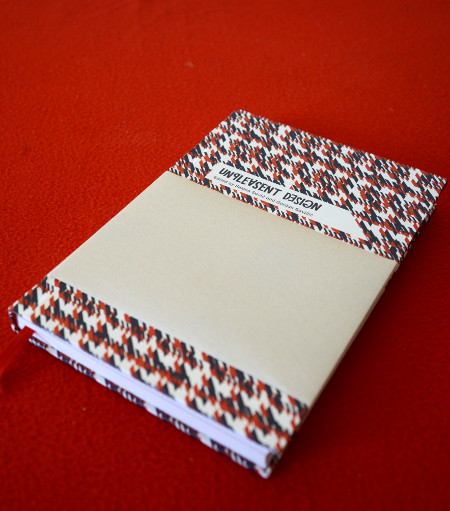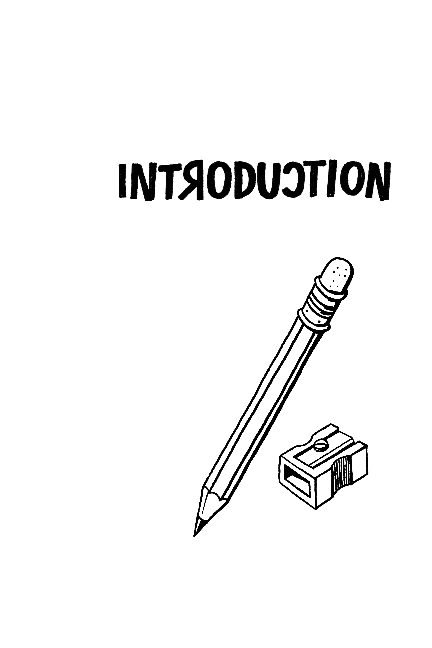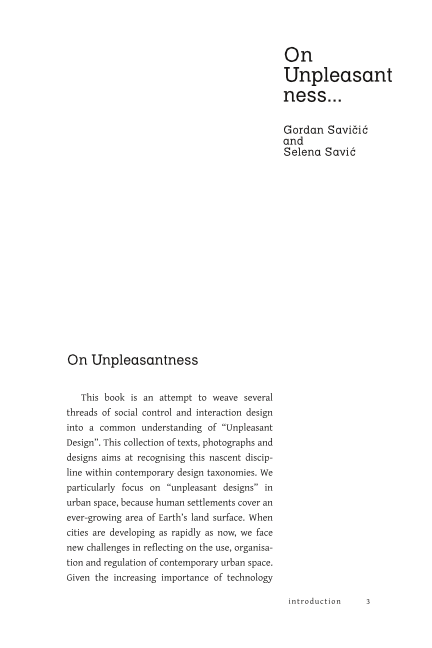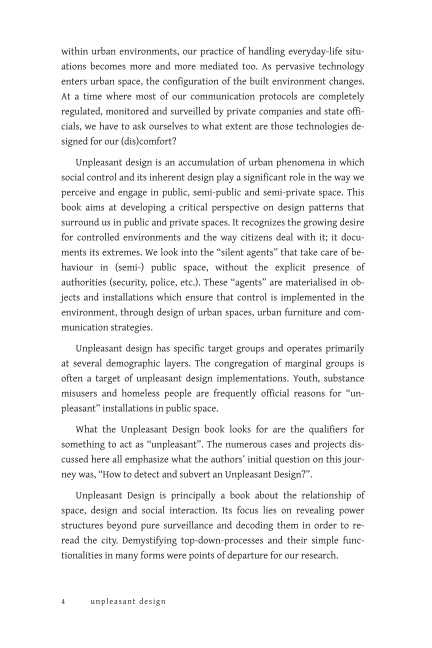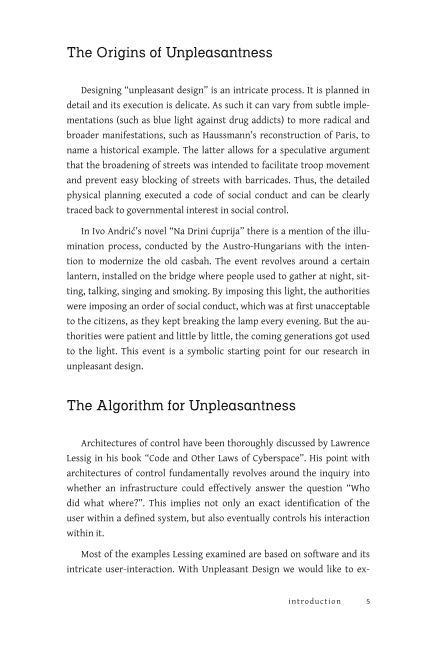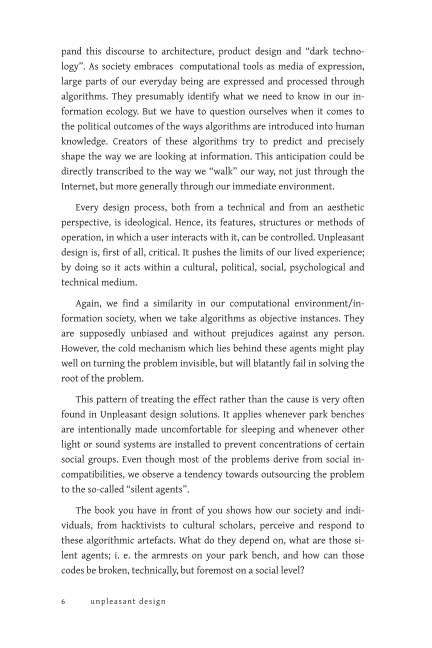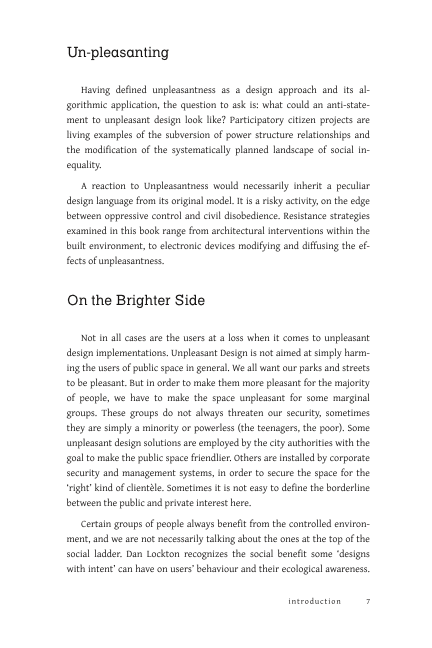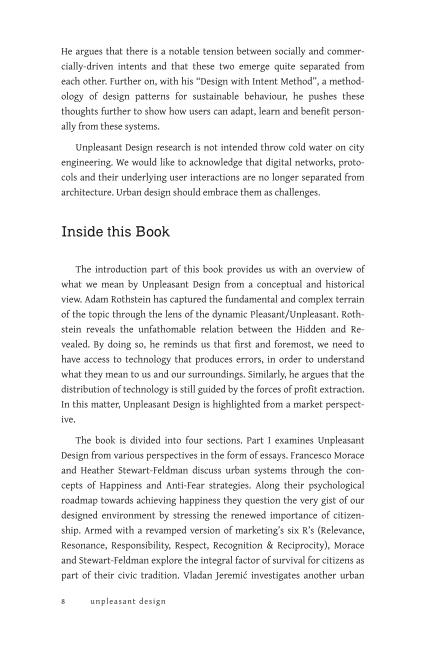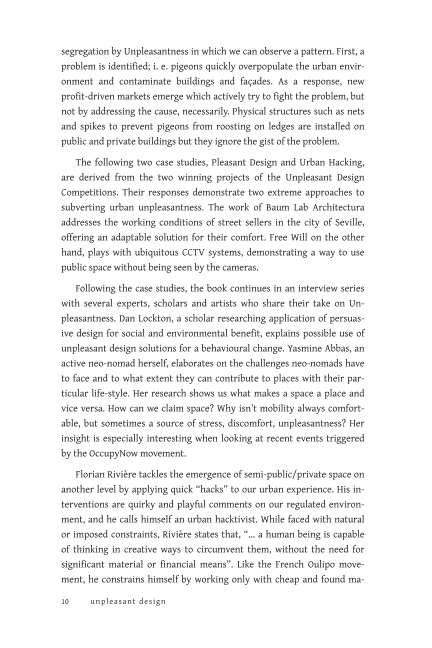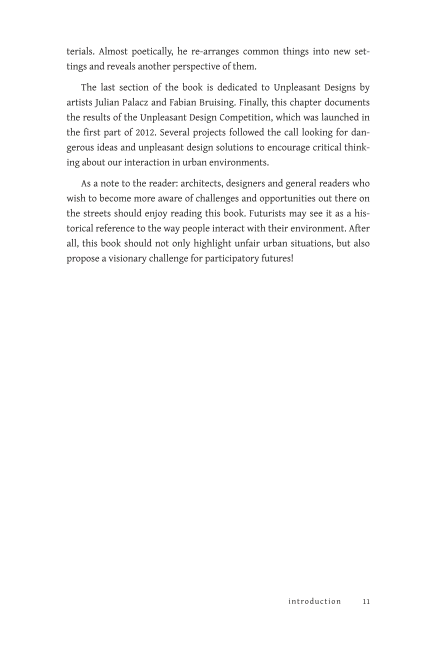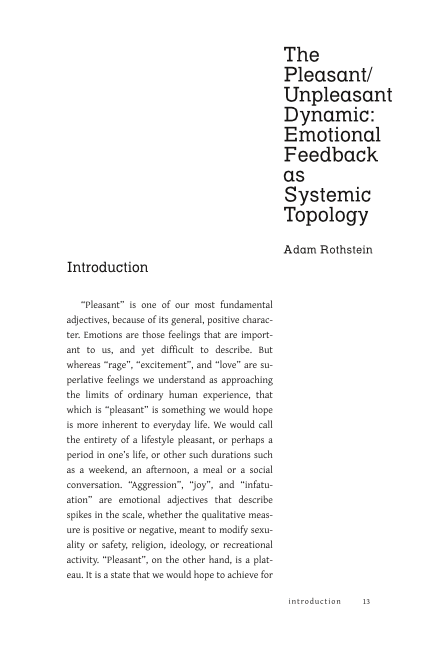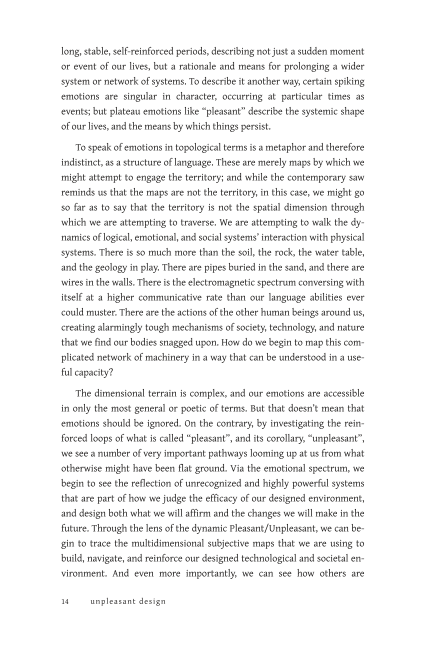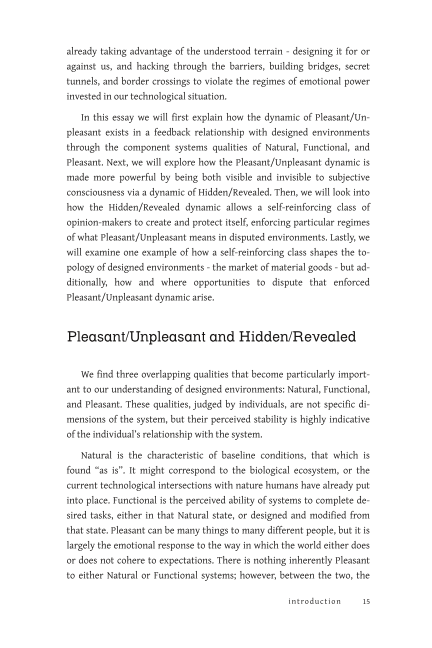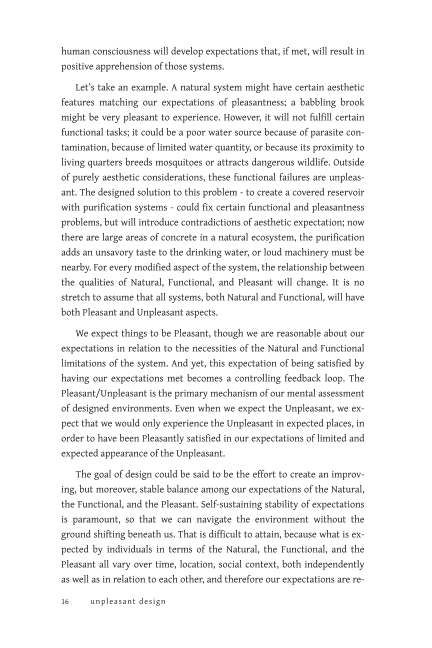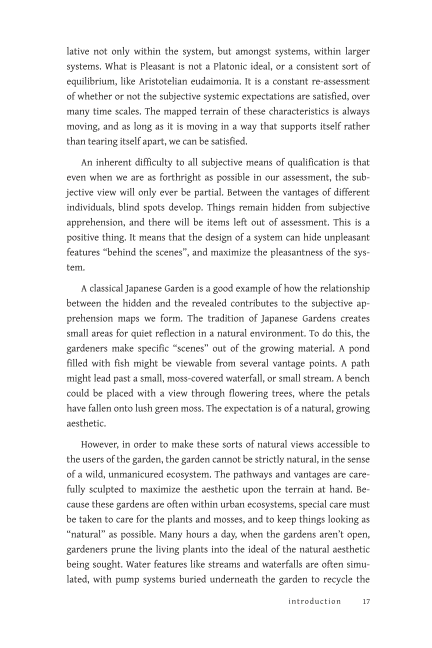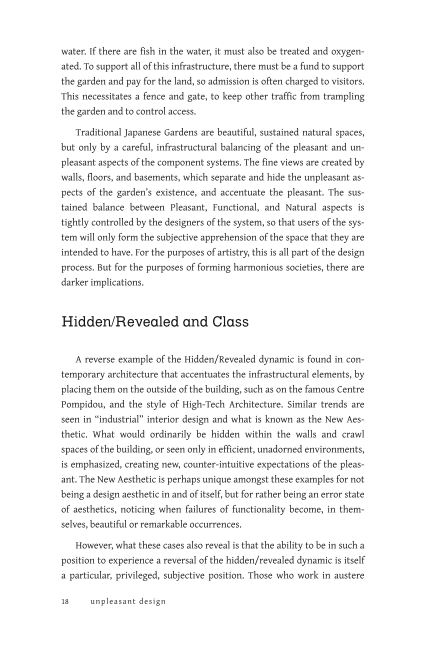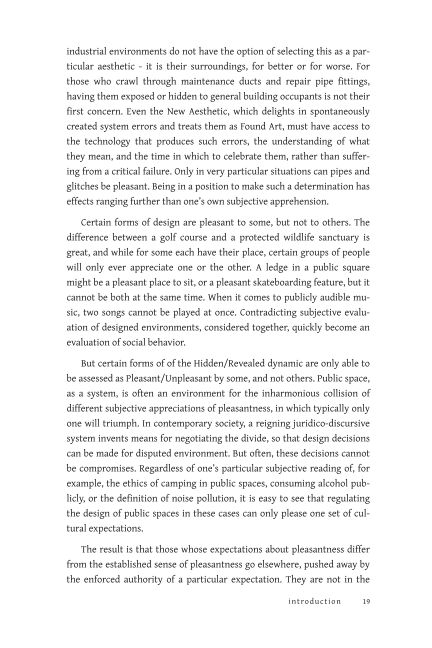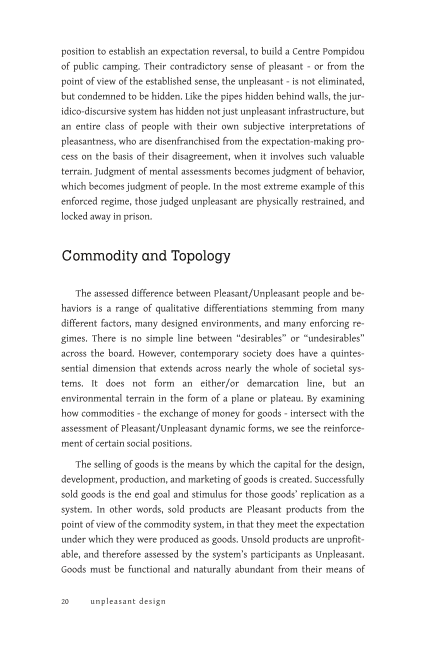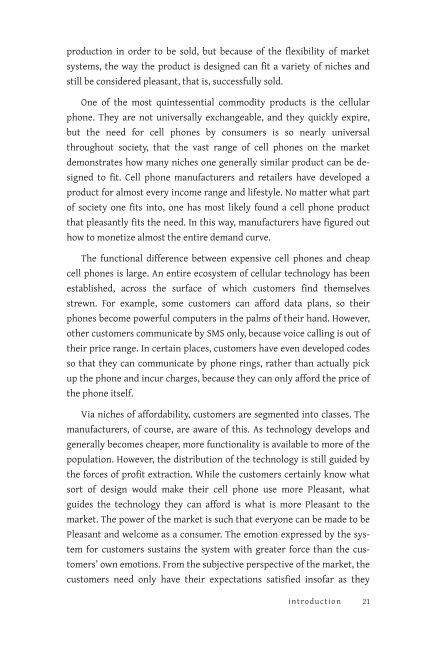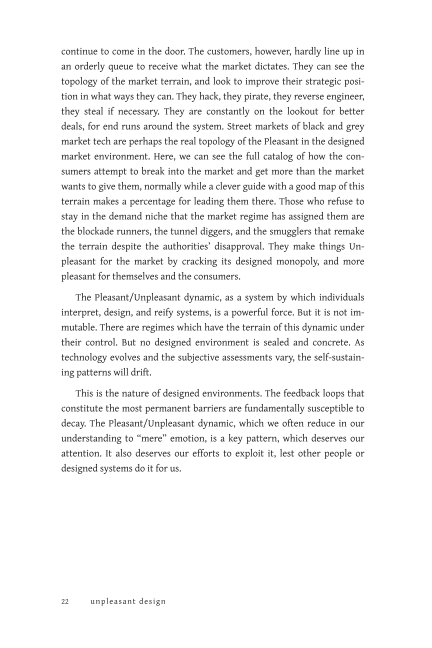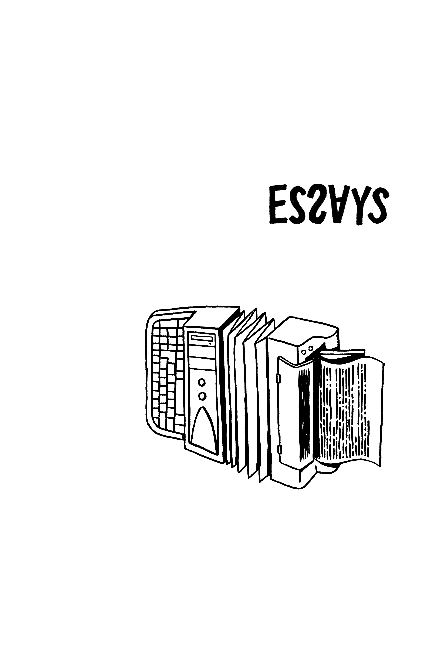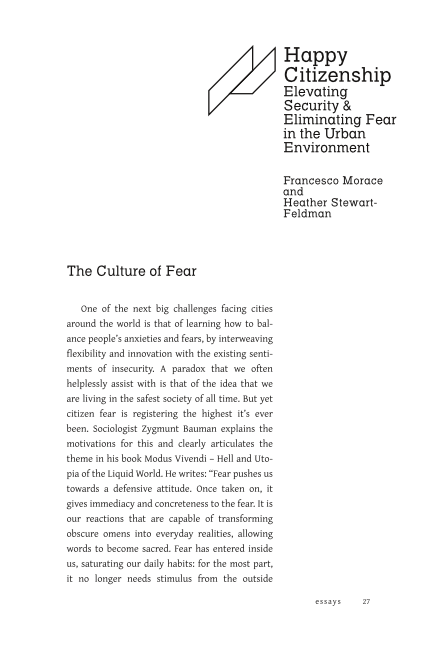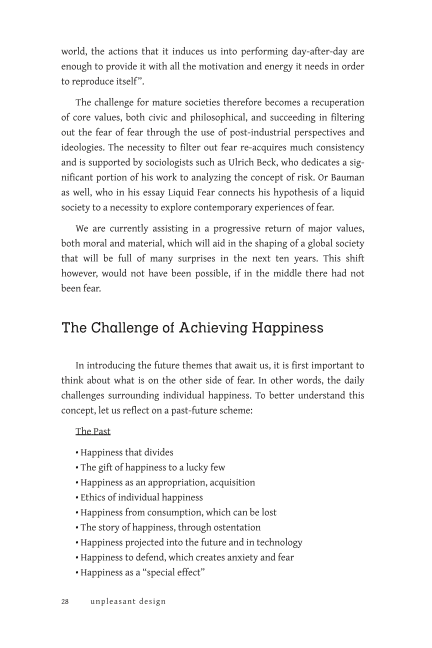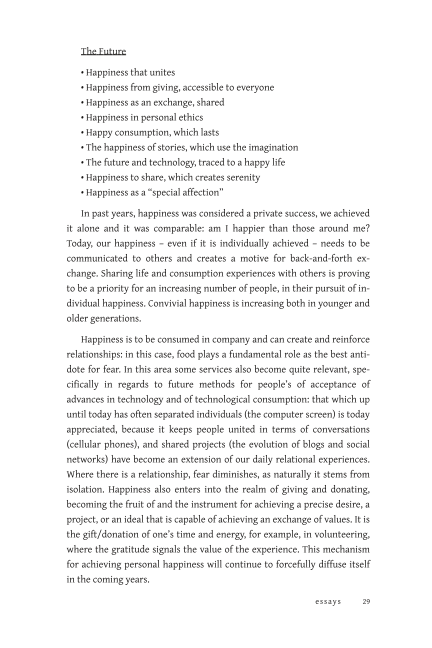The Unpleasant Design team gave a workshop at the 2014 edition of AMRO – Art Meets Radical Openness in Linz, Austria. The workshop focused on generating pragmatic and site-specific solutions for unpleasantness in Linz.
During the Unpleasant City Research Tour we identified possible targets for such interventions, amongst them the new garbage bin design for city centre; flower decorations in the area where skaters hang out; the space under Lentos museum; open wireless networks which come with take your credentials in exchange for Internet traffic… These and other examples are featured on the workshop tumblr blog.
Following a brainstorming discussion on examples of unpleasantness participants have encountered in Linz and in other cities, we decided to focus on garbage bins. The new bins installed in Linz city centre feature a surface which is resistance to stickers and similar types of dirt. We already identified this bin as unpleasant and documented it on our site. It is made of rippled curved inox surface, impossible to attach paper or similar material to. We assume that the previous version of the bin was often target to grassroots advertising and personal messages, or that this design simply comes as fashion, invented elsewhere where this problem existed.
Our goal was to re-enable citizens of Linz to advertise and communicate on this surface, thus reclaiming a part of public space back from Unpleasant Design. For this purpose we created a ‘sticker-friendly mat’, adapted to the ripples on the bin’s surface. We first took a sample of the ripple pattern using a crayon and a piece of white paper. We copied these images and created a cutting template for the holes. We cut out the pattern on cardboard sheets and installed several of them onto the bins on Hauptplatz (Main square).
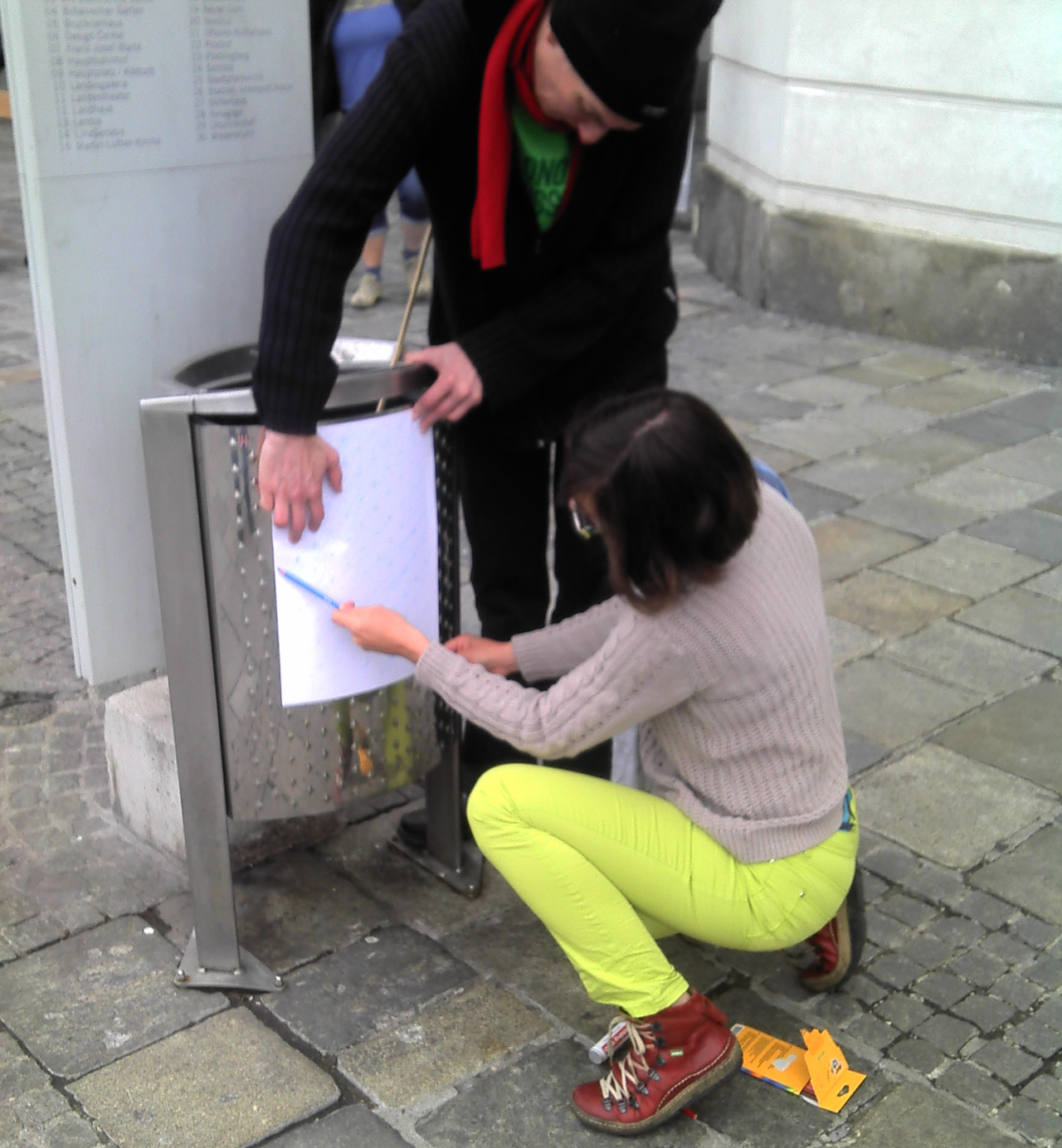
(more…)
From Chindogu to NSA Unpleasant Design workshop given at the Urban Kinghts event gathered some inspiring designers, artists, and theoreticians around the topics of design, exclusion, discrimination and participation in the urban environment. We formed a small think tank to cogitate current trends in urban design and the social control inherent in them.
Having set for our goal a design that will enable only a particular behaviour, we considered Berlin-specific behaviours like bottle collecting, hipsters, walking with babies, drug dealing. We listed different persuasive and coercive design techniques that could target these groups (for example facial recognition software could be used to match criminals but also to distinguish whether somebody is a hipster).
In the light of the multitudinousness of ongoing protests against different forms of oppression, and the pending economic crisis, we decided to focus on businessmen. Our businessman is someone with rather uncomfortable routines, having a strict dess-code, always carrying a briefcase, always after creating profits. Although probably enjoying his income, he is somebody who has very little time for day-to-day joy, and he rarely gets to express his own beliefs. Thus, we decided to work towards enhancing the life of a businessman with a multi-purpose suite which can be worn to regular business meetings, while at the same time serving as a kit for spontaneous, sudden protest. What we came up with is a set of designs that subvert standard businessman’s outfit into an urban protesting kit.

(more…)
We hosted a sprint-workshop at the Lift conference 13 in Geneva. Around ten participants joined the occasion to develop quick prototypes for unpleasant designs after we had brainstormed through various near-future scenarios.
We asked the participants to think about the “definition” of UNPLEASANT DESIGN, searching for techniques and tactics to be employed when designing “unpleasantness”. We then created a map of possible behaviours and/or social groups to discriminate against, out of which our protoypes were to emerge from. The following two sheets show the results of this thinking process.
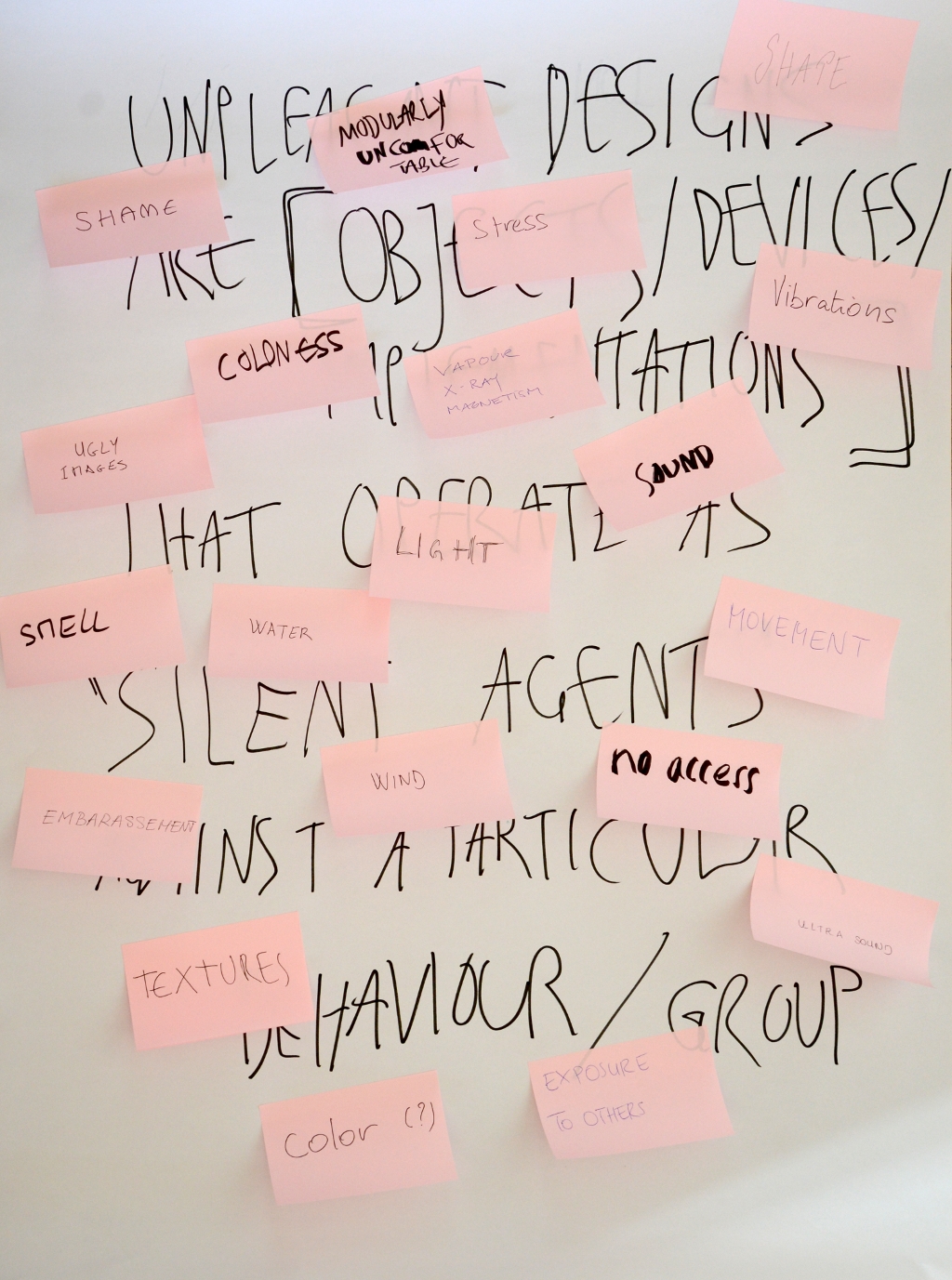 defining unpleasantness: tools, techniques and strategies to be used when designing unpleasantness |
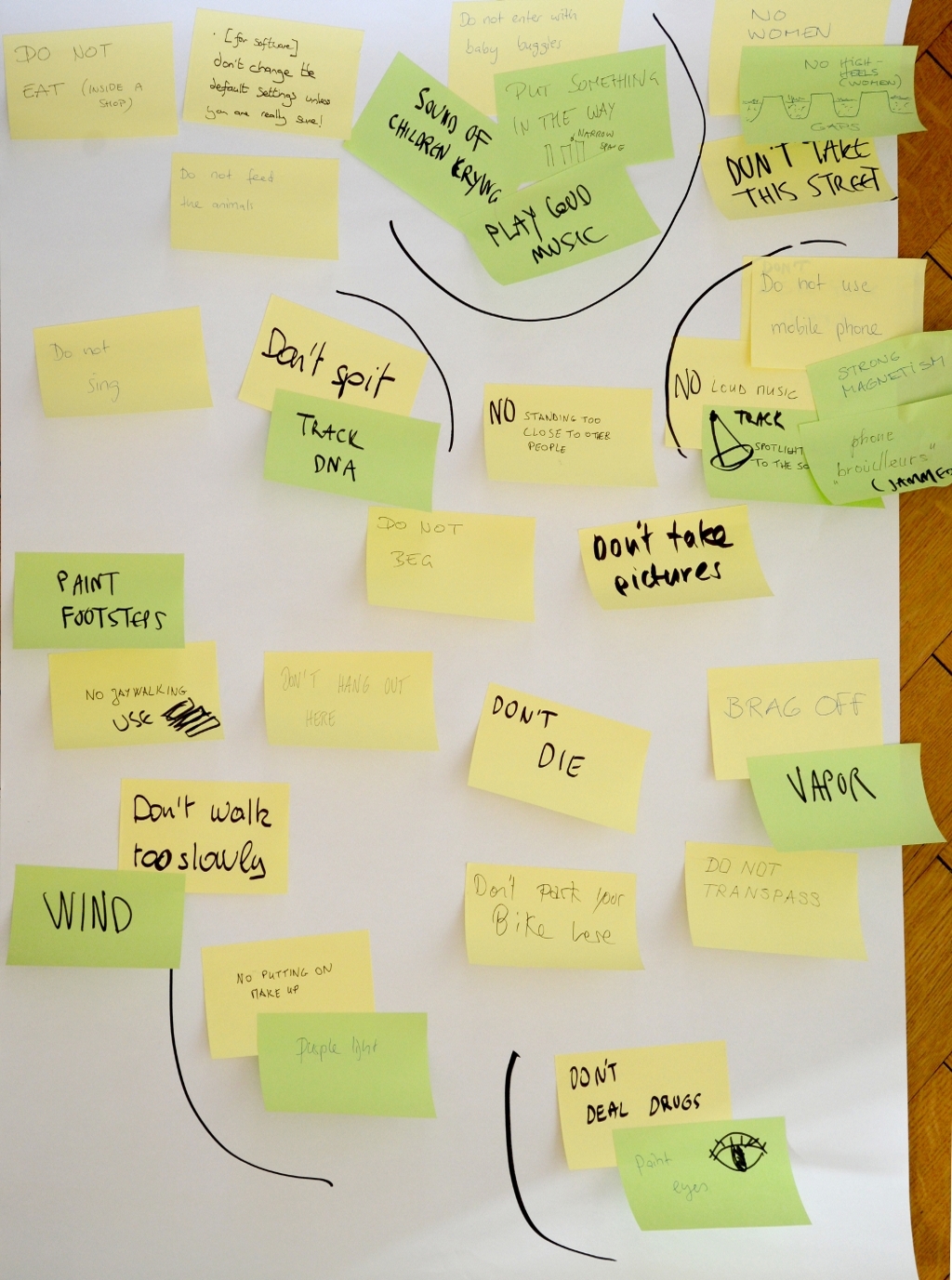 the ‘to forbid list’ – a map of behaviours and social groups unpleasant design could discriminate against |
(more…)

